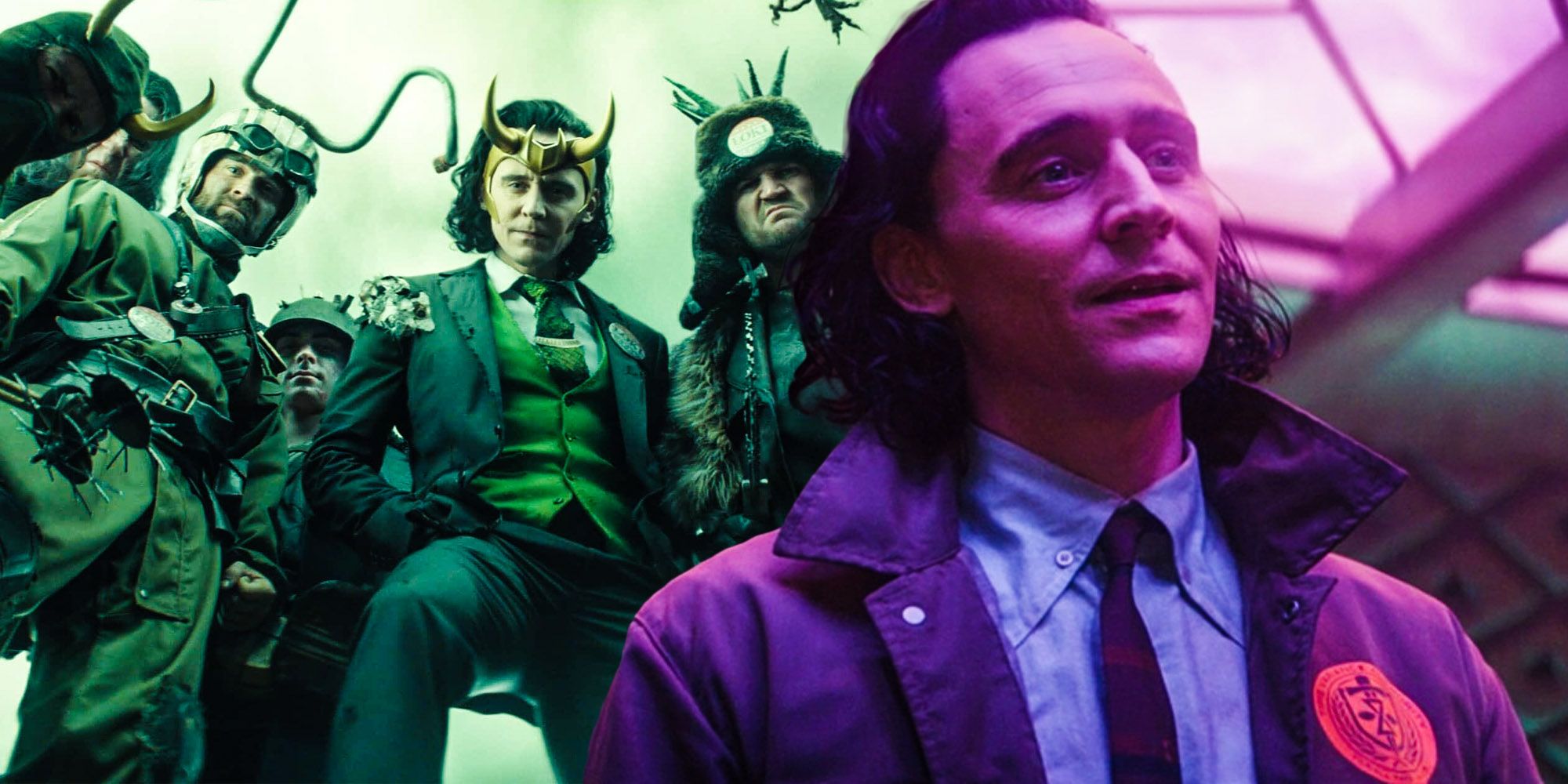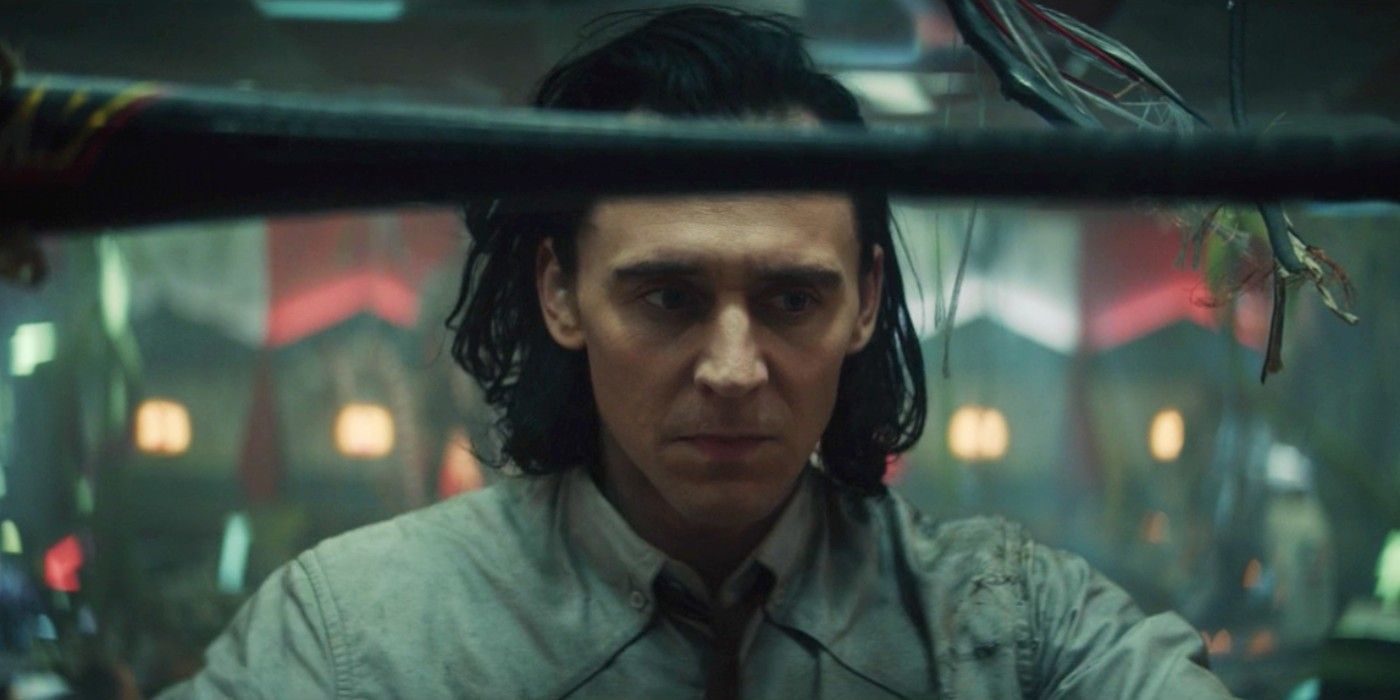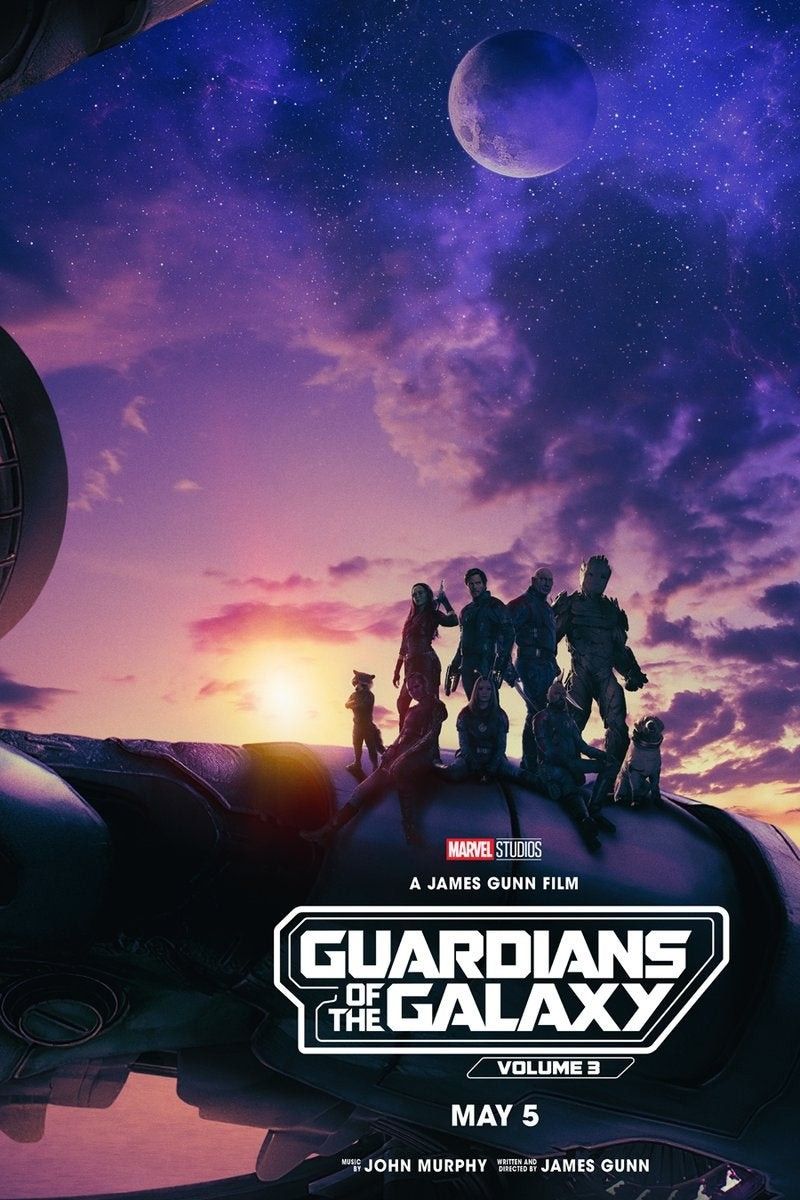Loki episode 5 rapidly descends into chaos as Loki meets several variants of himself, who he is quick to label "monsters" — but why does Loki have such disdain for his alternate selves? Episode 5, "Journey Into Mystery," makes it clear there is a big difference between the typical Loki variants and Sylvie, the female version of Loki who was the first to appear in the new Marvel TV show. As original Loki undergoes a transformation, due in no small part to his unique relationship with Sylvie, his perception of the other Loki variants changes.
Loki meets more than a dozen versions of himself during his time in the Void, but the first four make up the core group. It's these four - Classic Loki, Kid Loki, Boastful Loki and Alligator Loki - whom Loki spends the most time with, talking about timelines and Nexus events. Eventually, however, Loki abandons the group. After an inspiring speech in which Loki entreats the variants to help him kill Alioth and escape the Void, they burst into laughter, immediately disregarding what they consider an absurd and doomed quest. Loki, frustrated with their attitude and determined to accomplish his goal with or without their help, walks away, calling them "monsters" under his breath.
Loki's accusation that the variants are monsters isn't just a throwaway insult or parting shot. Tom Hiddleston's delivery of the line makes it clear that this is a personally significant conclusion he's come to after spending time with his alternate selves. Loki's conclusion is rooted in his changed perception of himself. In many ways, the variants are similar to Loki's past self. They're resigned to being the villains of the story, embracing their identity as the "God of Outcasts," as Classic Loki says. Original Loki, who has gained hope he can change through his friendship with Mobius and relationship with Sylvie, detests their pessimistic attitude. Instead of developing a plan or taking action, they're lounging in defeat.
Loki, who is now determined to help Sylvie take down the TVA, seems to regard the variants with a combination of pity and self-loathing. In many ways, they've lost their edge. Unlike past Loki, who was determined to do evil, or present Loki, who is determined to be a kind of quasi-hero, the variants are content in taking no action whatsoever. They each represent the worst of Loki himself. Boastful Loki is a liar, but instead of using it to win, he simply makes up accomplishments. Kid Loki is harder to read, but he killed Thor, something Original Loki has never accomplished (nor wants to). Classic Loki recognizes his faults, but has withdrawn entirely from the wider world. Each of them also has some traditional Loki trait, traits he is now trying to distance himself from. At times, they are power-hungry, untrusting, impulsive, violent, arrogant, narcissistic and willing to betray anyone at any moment.
In contrast, Sylvie is mostly unambitious. She's not on a mission to overturn the TVA for personal gain, but because of the inherent wrongness of the organization. Unlike the other Lokis, Sylvie is sober, practical and willing to trust others. As Loki says, "She's different. She's not trying to take over the TVA, she's trying to take it down." It's worth noting that those differences may be due to her gender. In describing Sylvie, Loki makes a point to mention that she's "a woman variant of us," agreeing with Classic Loki that she's "terrifying" but adding, "That's kind of what's great about her." Loki himself identifies with the variants, but, inspired by Sylvie, he's trying to change. When it becomes clear they won't help him in his mission, he gives up on them, condemning the group as monsters.









